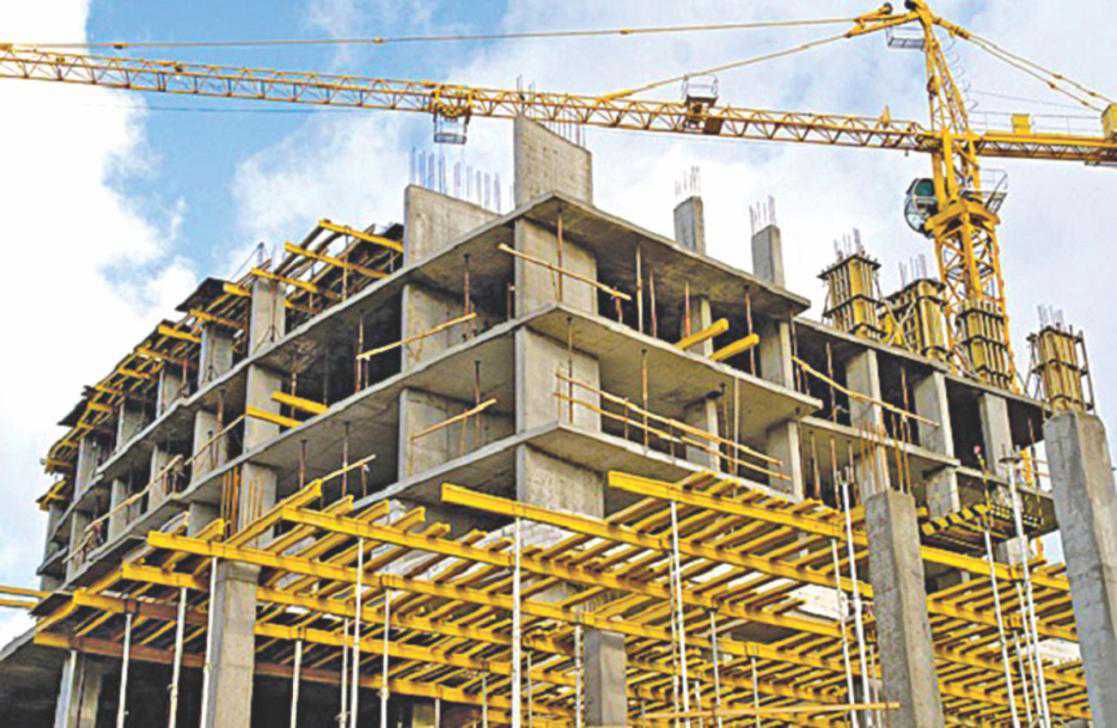Construction sector looks to thrive on higher demand

The construction sector passed a good year in 2018 and looks to perform even better this year on the back of speeding up of implementation of major infrastructure projects.
“2018 was good for us as there had been no sharp increase in the prices of raw materials,” said Munir Uddin Ahmed, president of the Bangladesh Association of Construction Industry (BACI).
Prices of raw materials such as cement, stones, sand, and bricks were more or less stable, he said.
However, steel prices rose sharply in the year compared to 2017 before getting stable.
Steel consumption exceeded 55 lakh tonnes last year up from 40 lakh tonnes a year ago on the back of fast-expanding development activities as well as fast-tracking of implementation of mega projects.
“The steel sector has benefited from expanding economic activities. The growth was good in 2018 as the use of steel products increased,” said SK Masadul Alam Masud, a former chairman of the Bangladesh Auto Re-Rolling and Steel Mills Association (BARSMA).
Cement sales rose to about 33 million tonnes in the year, the highest on record, from about 30 million tonnes posted annually in recent years.
Cement consumption grew 12 percent in 2018, way ahead of 8 percent to 10 percent average annual growth recorded in the last decade, said Md Shahidullah, vice president of the Bangladesh Cement Manufacturers Association.
“The demand and supply of bricks are growing at 3 to 5 percent per year, which is satisfactory,” said Mohammad Azad Hossain, an official of the Bangladesh Brick Manufacturing Owners' Association. There are about 7,000 brickfields in Bangladesh, each producing 30 lakh pieces of bricks per year.
Liakat Ali Bhuiyan, first vice-president of the Real Estate & Housing Association of Bangladesh (REHAB), said last year was better for the real estate sector compared to 2017.
But in the last few months of 2018, the sector did not perform well compared to other months in the year, said Toufiq M Seraj, managing director of Sheltech (Pvt.) Ltd.
“The demand for building materials is very high at the moment because of a large number of government projects as well as individual usage,” he said.
The banking sector has bumped up its lending to the construction sector on the back of the government's mega project implementation spree.
As of September last year, credit flow to the construction sector stood at Tk 80,000 crore, up 20.24 percent from a year earlier, according to data from the central bank. The sector accounted for 9.44 percent of total outstanding loans in the private sector.
The sector also faces challenges.
Although Bangladesh is self-sufficient, or close to it, in cement and billets, it still requires imports of raw materials for these products. The prices of industrial raw materials globally are projected to remain flat year-on-year. However, the projected depreciation of the taka is likely to lead to increased costs for construction materials.
“Given the projected depreciation of the taka and steady prices of industrial raw materials, construction costs in Bangladesh are likely to rise in 2019,” said the Asian Infrastructure Investment Bank (AIIB) in January.
Masud of BARSMA hopes that the steel sector's growth will be repeated in 2019 as there is no hint of panic in the international market.
“But at home, bank interest rates are out of our control. The dollar price is showing an upward movement and if the current trend continues, there may be an unstable situation.”
“As the election is now over, there is political stability. So, we expect the market to be better this year than last year,” said Alamgir Shamsul Alamin, president of REHAB.
Seraj of Sheltech said because of the downward trend of the bank interest rate, inquiries from customers have gone up.
“This will pick up until June. If the budget takes some business-friendly measures, the sector will get better.”
Mainuddin Monem, deputy managing director of Abdul Monem Limited, the country's leading construction firm, said there should be more progress in terms of implementation of projects in the construction sector. “More financing, skilled human resources, and technology transfer are needed.”
BACI's Ahmed hopes 2019 would be even better for the construction sector as the government has been implementing a number of major projects.
He called for cutting value-added tax and other taxes slapped on the imports of construction raw materials as well as the tax on imports of capital machinery. Because of the high tax and VAT, construction firms can't make much profit and sometimes even operate at a loss, he said.
Ahmed said there should be a provision of domestic preference in the public tenders for infrastructure development so that local firms can compete with foreign firms while bidding for a project.
There should be a provision for price adjustment for local construction firms if the tenure of a project goes past 18 months like it is done in the case of foreign firms, said Ahmed.
The BACI chief called for the application of VAT calculator formulated by the National Board of Revenue and published on its website, instead of the traditional method.
Source: https://www.thedailystar.net